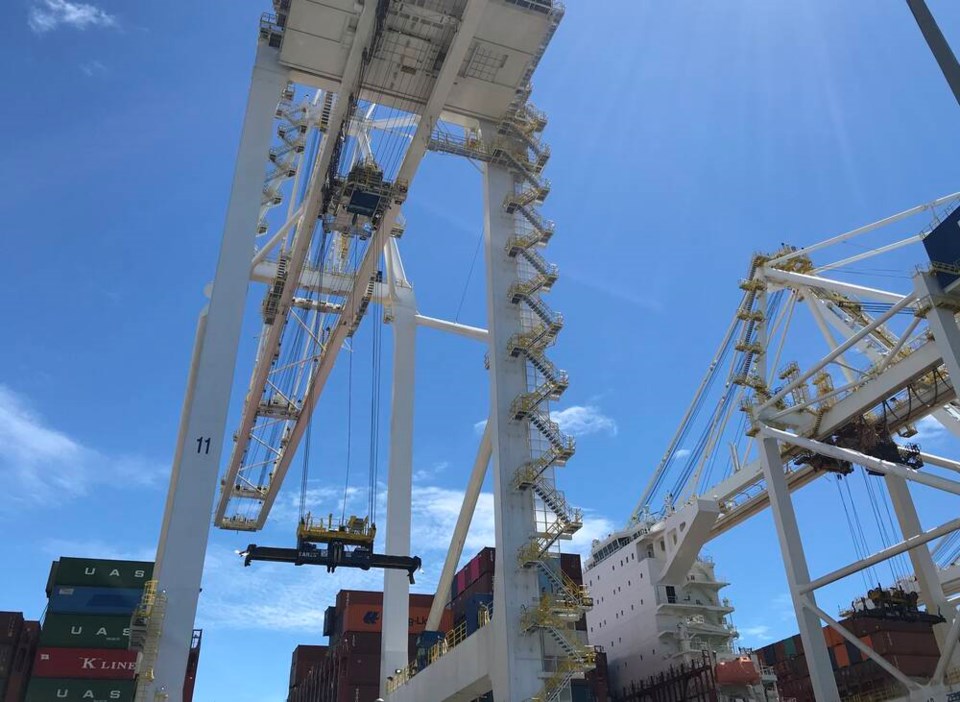A new container terminal facility at Roberts Bank in Delta has moved another step closer to reality with the Vancouver Fraser Port Authority (VFPA) issuing a notice announcing that procurement is set to begin this summer.
The port authority on Wednesday (May 14) said it will issue a request for qualifications in July 2025 for a construction partner to deliver the landmass and wharf component of the Roberts Bank Terminal 2 (RBT2) project, a significant step towards delivering the project.
In a news release, Victor Pang VFPA Chief Financial Officer, said, RBT2 is a transformational, nation building project that will support Canada’s economic security and trade resilience, enabling the trade of more than $100 billion in goods annually once fully operational.
The project will be delivered via a progressive design-build contracting model, he said, adding more than 18,000 jobs will be created during construction, and once operational the new terminal is anticipated to generate more than 17,000 well-paying, long-term jobs and add more than $3 billion in GDP annually.
“With consent from 27 Indigenous groups, key environmental approvals already in place, and permitting processes well underway, we’re looking forward to collaborating with the future construction partner to build this nationally significant project, for the benefit of all Canadians,” said Pang.
According to the port authority, the progressive design-build procurement approach will allow for greater flexibility in the design process, strengthen collaboration, as well as enhance cost and schedule certainty.
The contract will include the delivery of a marine terminal landmass, including wharf structure and berth pocket, widened causeway, expanded tug basin, as well as environmental mitigation and offsetting projects. Procurement opportunities for other components of the project will be available in the coming years, the port adds.
At the conclusion of the request for qualifications process, three qualified construction partners will be invited to participate in a request for proposals for a design and early works agreement, the port explains.
Construction mobilization and early works are expected to occur in 2027, with major land reclamation works expected to begin in 2028. Terminal operations are set to begin in the mid-2030s.
In 2023, the major container port expansion application in Delta was given the green light by the federal government after a “long and thorough review.” A provincial go-ahead followed later that year.
Built on a new man-made island adjacent to the current Deltaport container facility, RBT2 will provide a 50 per cent increase to the container facility’s capacity, providing 2.4 million TEUs (20-foot-equivalent units) of additional capacity annually.
In an interview earlier this year with the Optimist on the VFPA’s 2024 cargo stats, president and CEO Peter Xotta said Donald Trump’s trade war with Canada has highlighted the need to diversify its trade and improve infrastructure.
Noting that almost as much cargo moved through the Port of Vancouver in 2024 as was handled by Canada’s next five largest ports combined, the port’s annual report adds that approximately 80 per cent of the international trade it enabled was Canadian trade with countries other than the U.S.




